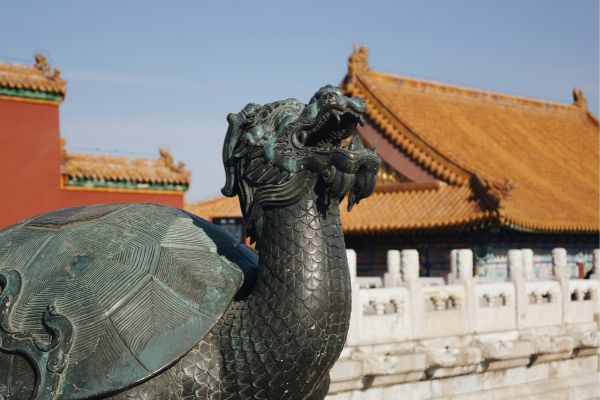
Building the arbitration credibility and the opening-up of arbitration sector in Shanghai and Beijing FTZs are highlights of China’s latest arbitration policies.
China’s arbitration policies have been increasing since 2015, and the arbitration is gradually gaining widespread attention. We need to understand why this is happening.
There are three phases for the development of China’s arbitration policies from 2015 to the present:
Phase One (2015-2018): from 2015 to the end of 2018, China’s Supreme People’s Court (SPC) provided judicial support for arbitration in order to promote the “Belt and Road Initiative” (BRI).
Phase Two (2018-2019): from the end of 2018 to the beginning of 2019, China decided to enhance the international credibility and competitiveness of Chinese arbitration, and strive for a voice in the global dispute resolution market.
Phase Three (2019-present): from the beginning of 2019 to the present, China has progressively adopted specific measures to promote arbitration, the core of which is to promote the opening up of the arbitration sector in the free trade zones (FTZs) of Shanghai and Beijing.
Each phase and its features are discussed in a series of two posts, with Phase One introduced in the previous post, the rest two Phases will be introduced in this post.
II. Building the Arbitration Credibility: from the end of 2018 to the beginning of 2019
In December 2018, the General Office of the CPC Central Committee of the General Office of the State Council issued the “Several Opinions on Improving the Arbitration System to Strengthen the Credibility of Arbitration” (关于完善仲裁制度提高仲裁公信力的若干意见). The Opinions marks the first time that arbitration has received strong support at the national level.
The Opinions focuses on regulating arbitration and enhancing arbitration credibility so as to fulfill the function of arbitration in respecting the party autonomy and solving disputes conveniently and efficiently. Such as:
(1) regulating the administration of arbitration commissions, including correcting their irregular market behaviors and improving their internal management mechanisms;
(2) regulating arbitration system, including strictly implementing the principle of party autonomy, improving arbitral rules, and establishing a mechanism for reasonable supervision of arbitration; and
(3) enhancing the internationalization of arbitration, such as supporting the development of arbitration in the regional opening-up like the construction of the BRI or the FTZs; encouraging the Chinese arbitration institutions to expand international market, and encouraging the Chinese arbitration sector to engage in international communication, to enhance the international competition and to enhance the cooperation among arbitration institutions in Mainland China, Hong Kong, Macau, and Taiwan.
After the issuance of the Opinions, the Ministry of Justice, as the competent authority of the arbitration sector, convened a national arbitration work conference on 28 Mar. 2019 to discuss how to adopt specific measures to achieve the requirements of the aforementioned opinions, and put forward development goals for 2019 to 2022.
After the national arbitration work conference, the Ministry of Justice issued the Special Action Plan for the Clean-up and Rectification of the Development Order of the National Arbitration Sector (全国仲裁行业发展秩序清理整顿专项行动工作方案) in 2019, starting to rectify violations of laws and regulations in Chinese arbitration sector.
Afterward, the Ministry of Justice further improved the registration rules of the arbitration institutions, and issued the Arbitration Commission Registration Management Measures (Draft for Solicitation of Comments) (仲裁委员会登记管理办法(征求意见稿)), in order to further enhance the supervision of arbitration institutions.
So far, China’s arbitration policies have expanded from “BRI-centered”, which focuses on serving the construction of the BRI, to “Credibility and competitiveness-centered”, with the core objective of regulating the arbitration sector and improving the international competitiveness of Chinese arbitration.
III. The Opening-up of Arbitration Sector in Shanghai and Beijing FTZs: after the beginning of 2019
1. The Development of Shanghai FTZ
(1) Allowing foreign arbitration or dispute settlement institutions to administer the arbitration in Mainland China
In July 2019, China’s State Council issued the construction plan for the Lin-gang Special Area of the China (Shanghai) Pilot FTZ, which clearly permits the renowned foreign arbitration institutions to set up offices in Lin-gang FTZ (Shanghai) and administer arbitrations of civil and commercial disputes in international commercial, maritime, and investment fields, as well as ensuring both Chinese and foreign parties have rights to apply for interim measures before and in the process of arbitration. [1] Shanghai Municipal Government then issued a corresponding plan to reiterate the above contents. [2]
With the support of the above plans, Shanghai Justice Bureau, as the competent authority of the local arbitration sector, issued the “Measures for the Administration of Overseas Arbitration Institutions Establishment of Business Offices in the Lin-Gang Special Area of China (Shanghai) Pilot Free Trade Zone” (境外仲裁机构在中国(上海)自由贸易试验区临港新片区设立业务机构管理办法) in November 2019. The Measures sets out specific rules for overseas arbitration institutions to open up markets in a localized manner.
According to the Measures, foreign arbitration institutions that substantively carry out arbitration business overseas and have a relatively high international reputation can set up business offices in Lin-Gang Special Area of Shanghai FTZ and conduct the following arbitration business of civil and commercial disputes in international commercial, maritime, and investment fields:
(1) acceptance of the cases, trial, hearing and rendering an arbitral award;
(2) case management and services; and
(3) business consultation, guidance, training, and seminars.
However, the Measures also emphasizes that the business offices shall not administer arbitration that does not involve foreign-related factors. In other words, the purely local dispute resolution market has not yet been open to these arbitration institutions.
Afterward, on 22 Oct. 2020, it was reported that the WIPO Arbitration and Mediation Shanghai Service (世界知识产权组织仲裁和调解上海中心), as the first international organization arbitration institution landed in Shanghai, has been substantively operating. We mentioned this news in a previous post.
(2) Opening ad hoc arbitration to the enterprises in the Lin-Gang Special Area
The SPC officially issued a judicial document related to the Shanghai FTZ at the end of 2019. In addition to reiterate the support for foreign arbitration institutions to establish business offices in China, it also put forward a major breakthrough, namely, to give support for ad hoc arbitration. It is phrased as “supporting companies registered in the new area agree to arbitrate related disputes at specific locations, in accordance with specific arbitration rules, and by specific personnel.” [3]
As is known, Chinese Arbitration Law only provides for institutional arbitration, but does not support ad hoc arbitration, which means ad hoc arbitration has almost no living space in China. This time, the SPC has opened a gap for ad hoc arbitration in the new area of the Shanghai FTZ. However, we have not yet found any specific measures taken by Shanghai local authorities targeting this policy, nor have we found any cases that actually adopted ad hoc arbitration.
Additionally, it is worth noticing that the SPC indicates in its document that it supports Shanghai to become an Asia-Pacific arbitration center. The Shanghai High People's Court also states in a subsequent document that it would support Shanghai to develop into a global Asia-Pacific arbitration center.[4] This should be what China currently expects from the Shanghai arbitration.
(3) One-stop dispute resolution mechanism for foreign-related commercial cases: converging litigation, mediation, and arbitration
Aside from the supportive measures, Shanghai High People’s Court also issued a document stating that it would establish a one-stop working mechanism for the multiple settlements of foreign-related commercial dispute, converging litigation, mediation, and arbitration. The mechanism indicates that in the process of filing and hearing commercial cases, Shanghai courts at all levels shall introduce or connect with mediation organizations or arbitration institutions, and channel the cases to these institutions, as well as providing services such as receiving materials from the parties and cooperating with the parties' applications for interim measures for these institutions.
2. The development of arbitration in Beijing FTZ
The development of the Beijing FTZ is almost a copy of Shanghai’s practice, although Beijing’s pace is nearly a year late. Beijing and Shanghai have been competing for a long time, and this kind of competition has also appeared in the arbitration sector.
The arbitration sector of Beijing has always been far ahead of Shanghai. China’s most well-known international arbitration institution, the CIETAC, is headquartered in Beijing. The Beijing Arbitration Commission, which is second only to the CIETAC, is also ahead of other Chinese arbitration institutions in the domestic and international markets. Therefore, Beijing does not want to lag behind Shanghai in the wave of arbitration opening to the outside world.
(1) Allowing foreign arbitration or dispute settlement institutions to administer arbitration in Mainland China
Driven by Beijing, the State Council also proposed almost the same plan as Shanghai, in the opening plan of Beijing announced in August 2020, supporting foreign arbitration institutions to establish business offices in specific areas of Beijing, and also supporting parties to apply for interim measures in arbitration. [5]
On 28 Dec. 2020, the Beijing Municipal Bureau of Justice also promulgated the "Administrative Measures for the Registration of Foreign Arbitration Institutions in China (Beijing) Pilot Free Trade Zone"(境外仲裁机构在中国(北京)自由贸易试验区设立业务机构登记管理办法), which clarifies how foreign arbitration institutions land in China. There is no substantial difference between the content of the two respectively promulgated by Beijing and Shanghai.
However, up to May 2021, we have not found any foreign arbitration institutions that have actually established business offices in Beijing.
(2) Opening ad hoc arbitration to the enterprises in specific areas of Beijing
Beijing has also “copied” the breakthrough made by Shanghai in ad hoc arbitration.
The judicial document issued by SPC in March 2021 about Beijing’s opening to the outside world again copied its practice in Shanghai and supported the ad hoc arbitration in Beijing FTZ. Its expression is almost identical to that of Shanghai.
“Whatever you have, I will have it too”. Maybe that is the competition between Beijing and Shanghai.
(3) The International Commercial Dispute Prevention and Settlement Organization landed in Beijing
As introduced in our earlier post, China established the International Commercial Dispute Prevention and Settlement Organization (ICDPASO, 国际商事争端预防与解决组织). In August 2020, the State Council issued a document expressing its support for the commercial dispute prevention and settlement organization to settle in Beijing. The SPC also made the same statement in the aforementioned March 2021 document.
This mechanism may incorporate multiple modes such as mediation and arbitration. The establishment of the Commercial Dispute Prevention and Settlement Organization in Beijing has enabled Beijing to finally achieve what Shanghai has not got in the arbitration area.
References:
[1] 2019年7月27日,国务院《关于印发中国(上海)自由贸易试验区临港新片区总体方案的通知》
[2] 2019年7月30日,上海市政府《中国(上海)自由贸易试验区临港新片区管理办法》
[3] 2019年12月7日,最高人民法院发布《关于人民法院为中国(上海)自由贸易试验区临港新片区建设提供司法服务和保障的意见》
[4] 2019年12月30日,上海市高级人民法院《上海法院服务保障中国(上海)自由贸易试验区临港新片区建设的实施意见》
[5] 2019年1月13日,国务院关于全面推进北京市服务业扩大开放综合试点工作方案的批复;2020年8月28日:国务院关于深化北京市新一轮服务业扩大开放综合试点建设国家服务业扩大开放综合示范区工作方案的批复;2020年8月30日:国务院关于印发北京、湖南、安徽自由贸易试验区总体方案及浙江自由贸易试验区扩展区域方案的通知。
Contributors: Guodong Du 杜国栋 , Meng Yu 余萌





